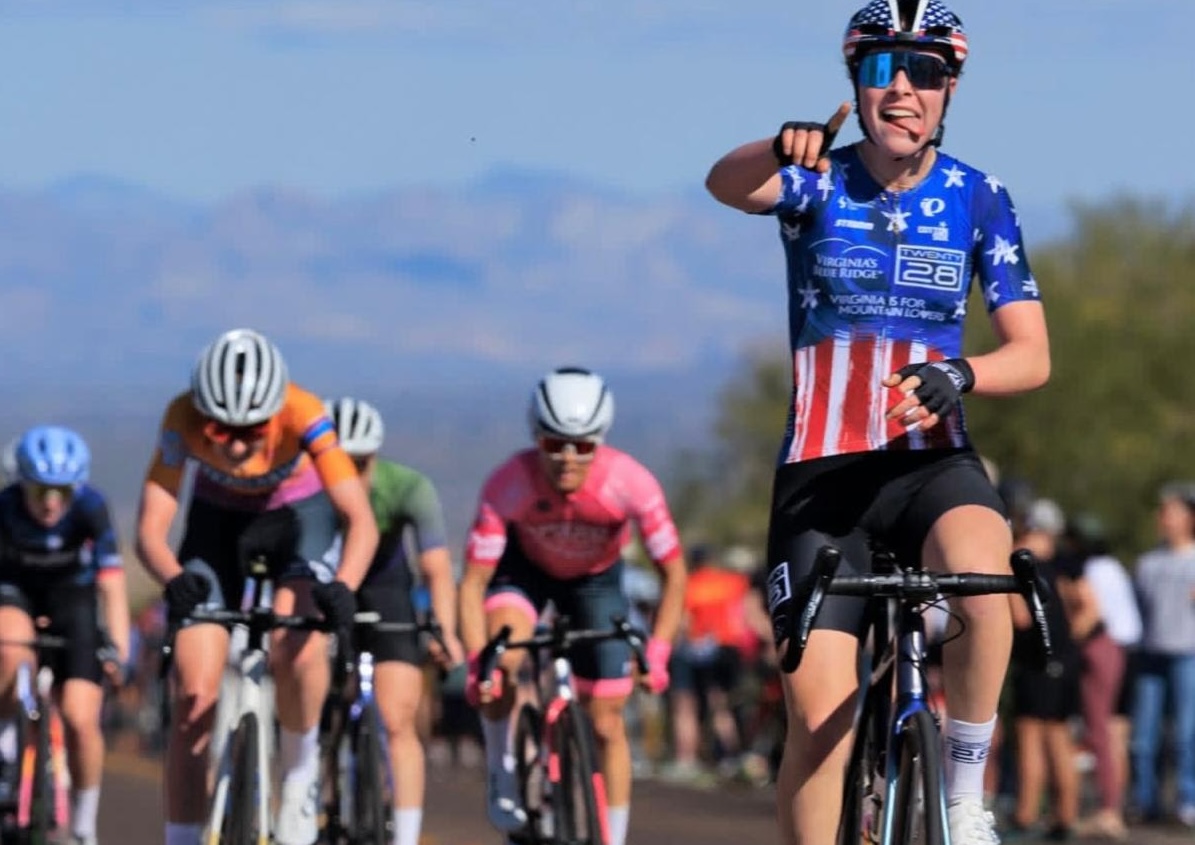Tour of Britain: Why the sprinters' teams missed out on stage 3
Stannard re-writes stage script in Tatton Park
The latest race content, interviews, features, reviews and expert buying guides, direct to your inbox!
You are now subscribed
Your newsletter sign-up was successful
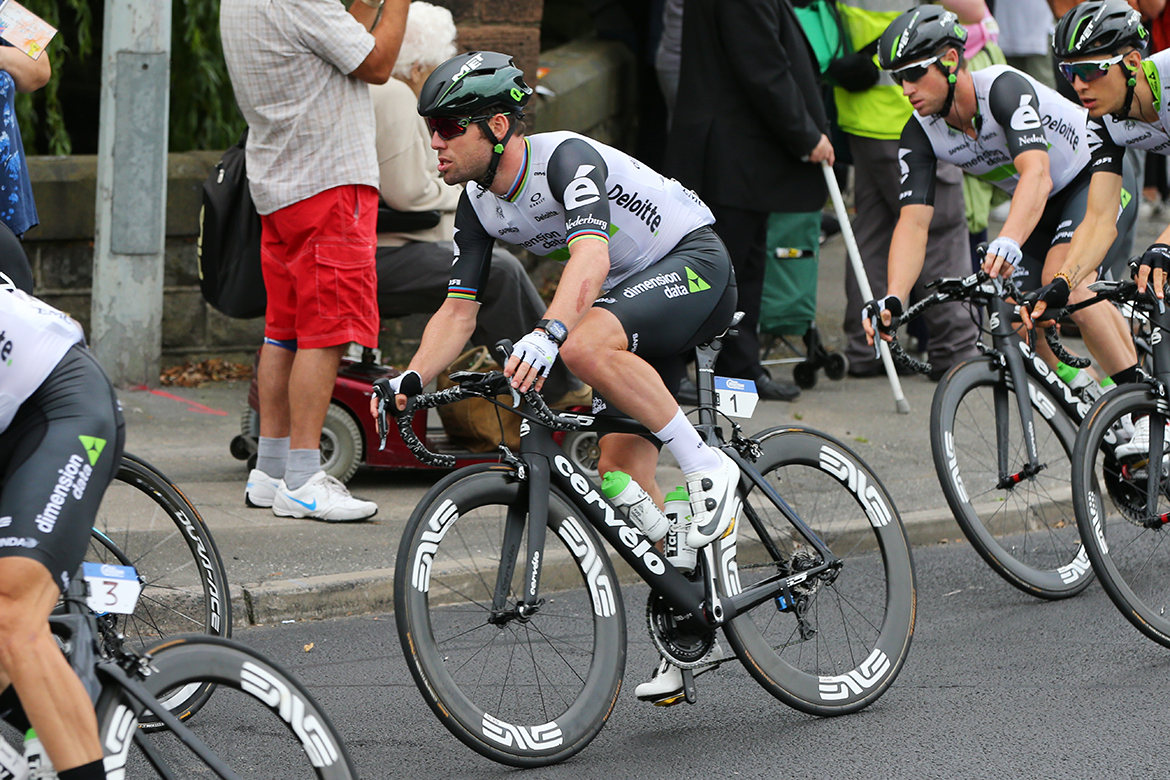
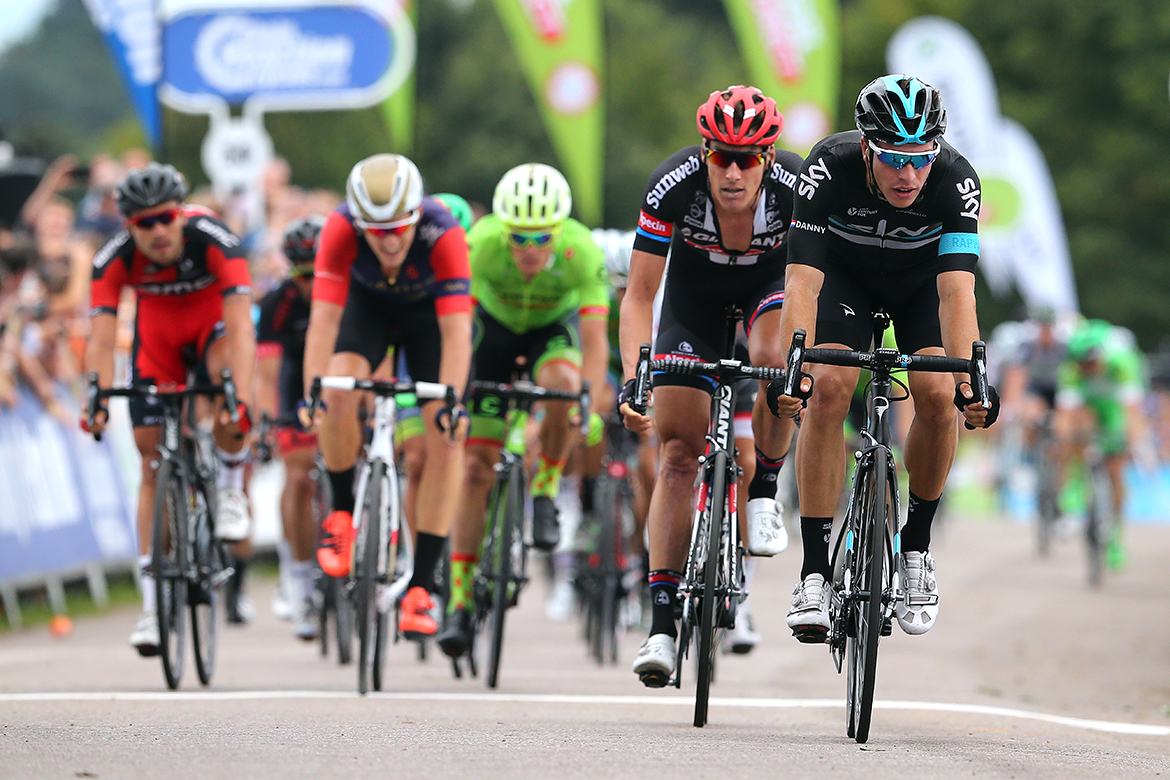
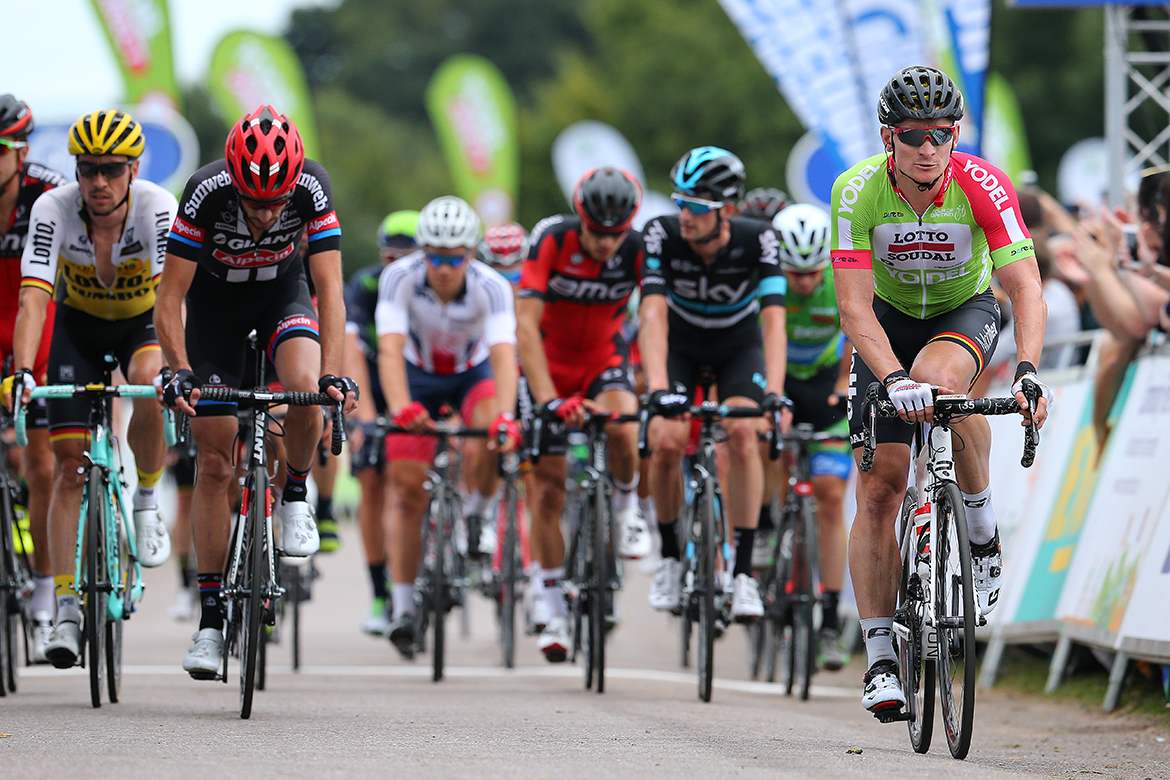
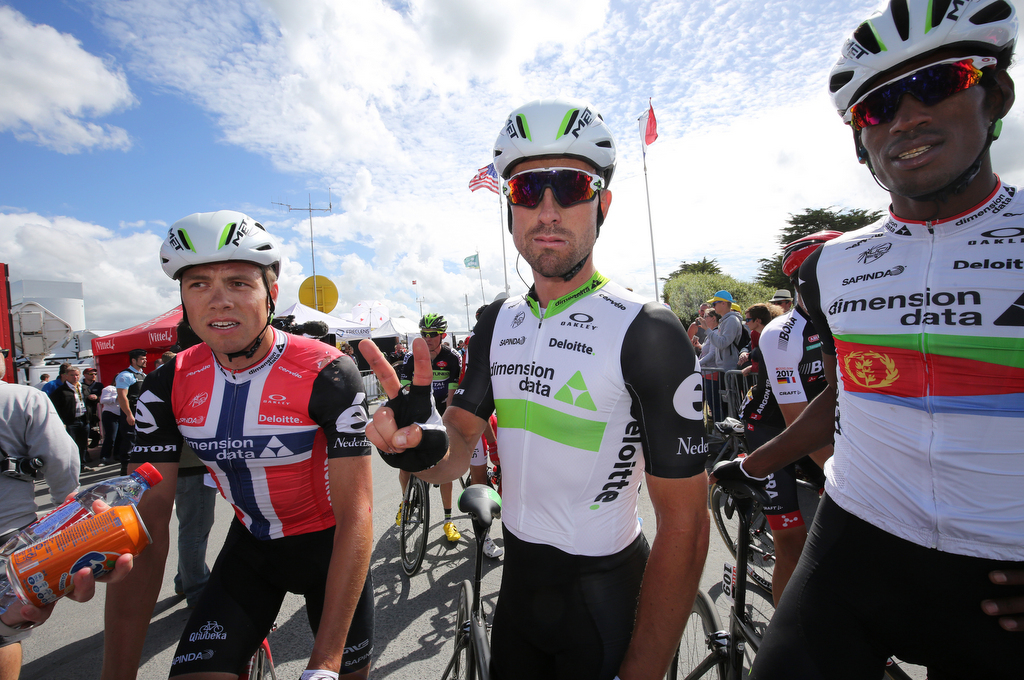
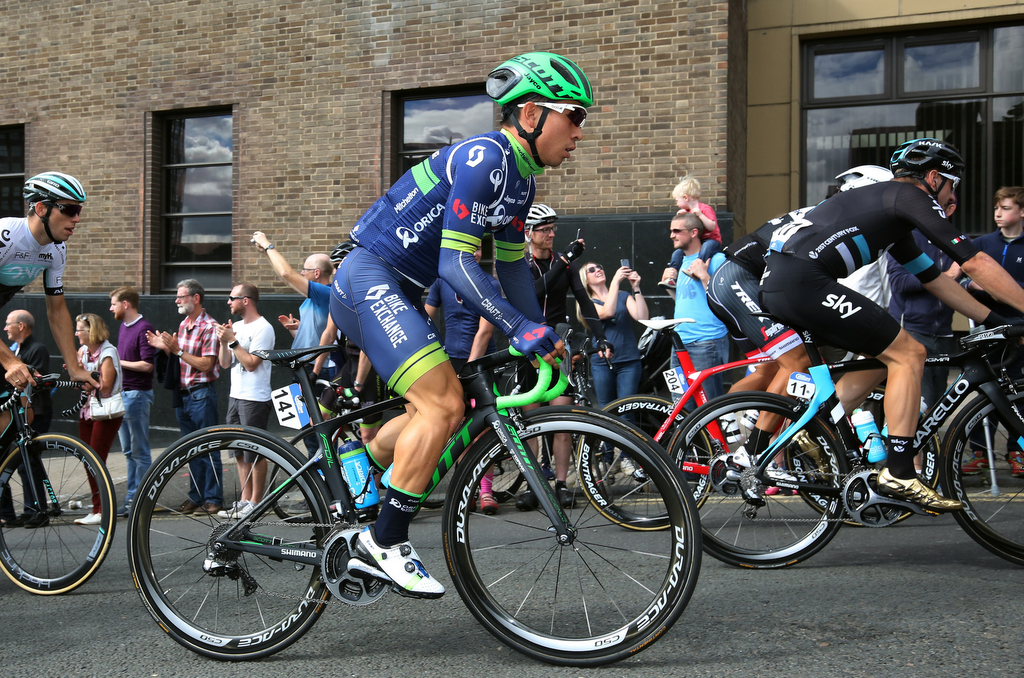
At the start of stage 3 of the Tour of Britain the consensus was that the day would end in a bunch sprint. However, stage winner Ian Stannard and his breakaway companions clearly hadn't read the script, and stole the show as the sprinters' teams were left empty-handed.
As the dust settled in Tatton Park, and riders had the chance to analyse the action, there were a number of reasons as to why the break had survived to take the spoils of victory.
"We were looking out for GC," Mark Cavendish told Cyclingnews as he signed autographs by his Dimension Data team bus.
Cavendish's team were of course riding with Steve Cummings' GC position in their thoughts. Cummings started the stage second on GC, six seconds off the lead and with a demanding parcours and small teams at the Tour of Britain, Cavendish stressed that his and every squad needed to dial in their ambitions.
"With six man teams you have to pick whether you go for stages or if you go for GC. You can't do everything because then you lose everything.
"When the break was at six minutes, it's safer to look after GC when there's no sprint. We can seriously win the GC with Steve here so we'll try for that."
Lotto Soudal refrain from working
The latest race content, interviews, features, reviews and expert buying guides, direct to your inbox!
The break formed early in the stage and consisted of Stannard, Kristian House (ONE Pro Cycling), Graham Briggs (JLT Condor) and Matt Cronshaw (Madison Genesis).
The previous stage had been an arduous affair with the peloton run ragged through the Lake District. Andre Greipel, a rider who on paper could have contested the stage today, had been in the break the pervious day and Lotto Soudal's pre-stage team meeting had laid out a clear plan that involved not working.
"We decided this morning that if Sky were in the break it would be the worst scenario," team director Frederik Willems told Cyclingnews.
"We expected that they would control the stage for Ben Swift because if they had made a high speed in the last section they could drop Cavendish and Greipel and make up some time on GC.
"After a really hard stage yesterday we knew that if we missed the break then we wouldn't pull. It's only six men teams and if we pulled from kilometre one then QuickStep and Dimension Data wouldn't have helped us.
"The next stages will be better for us," he added, hinting that stage 4 will see the GC contenders go to war on a day that consists of 4,000 meters of climbing.
That's part of the reason why Dimension Data, although were on the front during today's stage 3, were never really chasing the break.
"Dimension Data were not pulling for Cavendish," Willems added. "They were working for Cummings on GC and they never had the intention of bringing back the break."
Cavendish's teammate Bernhard Eisel agreed with Lotto Soudal's take on the workload of the peloton and stressed, like Cavendish, that the element of six-man teams was a major part in how the race unfolded.
"Who is going to control that with six-men teams? It's a lottery. It would have been an easy day to control but we knew from the beginning, especially with Stannard out there, that the bunch needed to chase earlier. We just controlled it for GC. If others brought it back then that would have been different," Eisel told Cyclingnews.
"Stage 4 is something like 4,000 metres of climbing so there's not so many bullets you can waste in a week of racing that is around 1,400 kilometres in a week."
And Eisel added that Lotto Soudal, despite Greipel's sprint credentials, were under no obligation to chase the break once it had gained several minutes on the peloton.
"They have a stage win, André had the jersey and he was in the break yesterday. It's not up to them to chase really. If I was other teams I would have chased earlier when Stannard had maybe two minutes. That would have made our lives much easier than giving the break seven minutes and trying to bring Stannard back."
Orica-BikeExchange's Caleb Ewan, another sprinter in the bunch, knew that the break would contest the finish once the peloton began to play games midway through the stage.
"I think a lot of the teams were bluffing and they just let it go out too far. A lot of teams were committing and then they stopped. Once they stopped later on then it was all over, especially with a strong guy like Stannard out in front," he told Cyclingnews outside his team bus.
"I also think a few of the sprinters were questioning themselves and then told their teams not to fully commit. The teams are so small here so one team can't really commit and try and control the breakaway. Teams need to work together and half the teams were working and half weren't."
So who actually wanted a bunch sprint on stage 3 of the Tour of Britain?
"Nobody," Willems said with a smile.
"Not even Dimension Data. It's strange they pulled actually because the guys in the break were not riding for GC so they were helping QuickStep which was a bit strange."
Eisel correctly added that Stannard was also a driving force in beating the sprinters. On local roads he had an inspired day in the saddle.
"When he's on, he's on. He's like maybe two good riders out there because he knows the roads. You can't give him too much time."
Daniel Benson was the Editor in Chief at Cyclingnews.com between 2008 and 2022. Based in the UK, he joined the Cyclingnews team in 2008 as the site's first UK-based Managing Editor. In that time, he reported on over a dozen editions of the Tour de France, several World Championships, the Tour Down Under, Spring Classics, and the London 2012 Olympic Games. With the help of the excellent editorial team, he ran the coverage on Cyclingnews and has interviewed leading figures in the sport including UCI Presidents and Tour de France winners.

